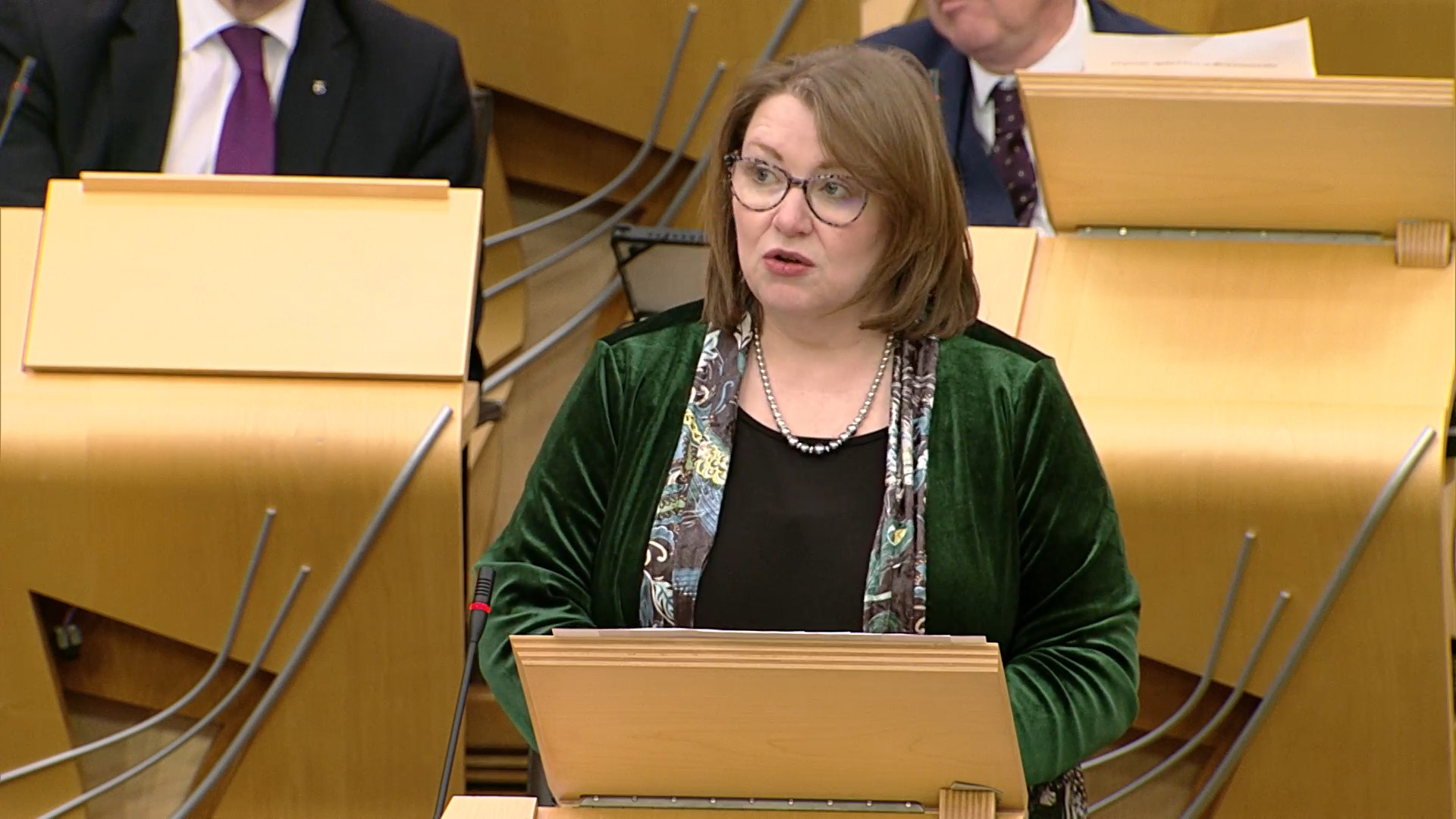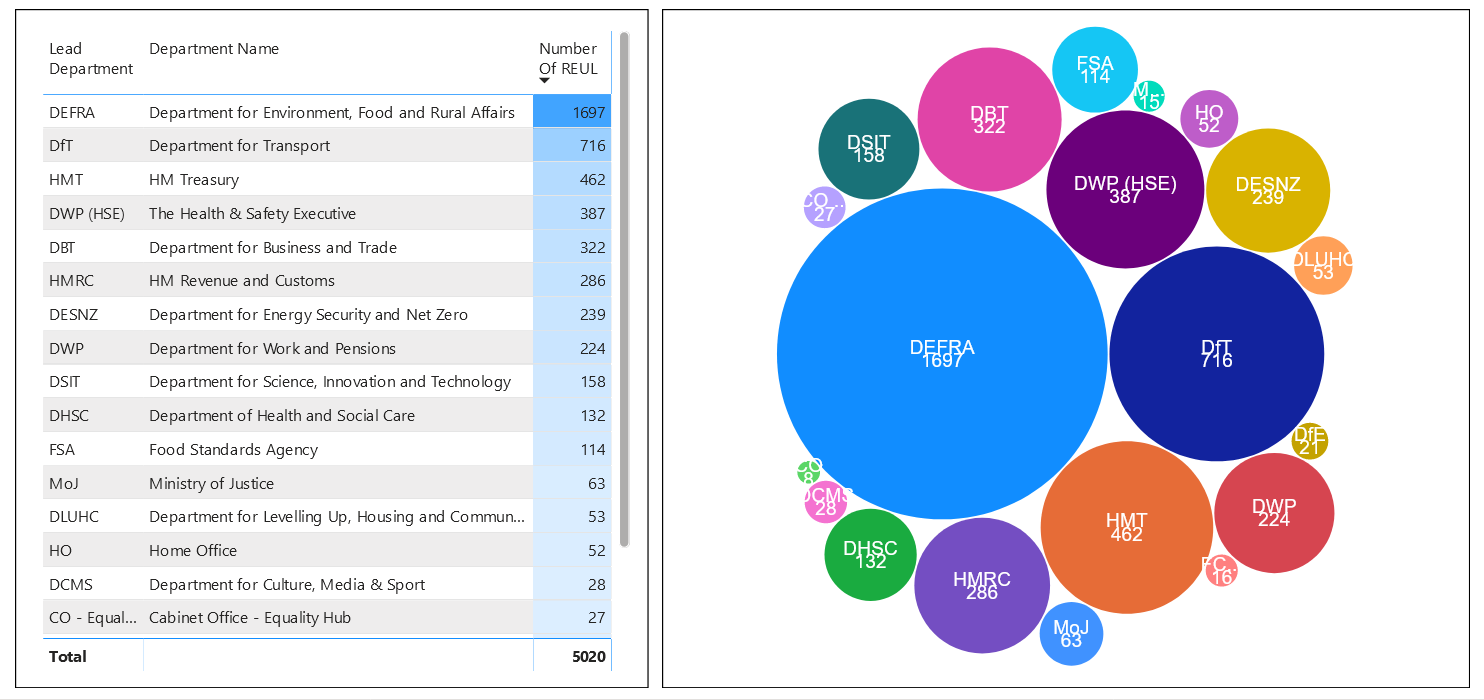Brexit & Beyond newsletter
15 January 2024
 Welcome to the 15 January 2024 Brexit & Beyond newsletter
Welcome to the 15 January 2024 Brexit & Beyond newsletter
The Scottish Parliament debated a report on devolution after Brexit, including discussions on Commons Frameworks and the Sewel Convention. With the Government’s first report on changes to Retained EU Law (REUL) due by Monday, today’s newsletter considers the UK’s policy on REUL in more detail. The Lords Sub-Committee has launched an inquiry on veterinary medicines and the Windsor Framework.
Devolution after Brexit
On 9 January, the Scottish Parliament debated a report on ‘How Devolution is Changing Post-EU’. The Constitution, Europe, External Affairs and Culture Committee published its report on this subject in October 2023. The Committee noted that after Brexit “there has been significant disagreement between the devolved institutions and the UK Government regarding how the regulatory environment should be managed within the UK.” It recommends a new Memorandum of Understanding between the UK Government and the devolved Governments, which should “specifically address how devolution now works outside of the EU and be based on a clear constitutional design including consideration of the principles of subsidiarity and proportionality.”
Common Frameworks
Common Frameworks are being developed in policy areas which were previously governed by EU law and which intersect with devolved competence. They aim to ensure a common approach is taken by devolved administrations in these areas, and to enable the functioning of the UK internal market, while acknowledging policy divergence. Clare Adamson, Convener of the Committee noted the Committee’s view that there needs to be “much greater clarity around how regulatory divergence…will be managed through the common frameworks programme”. She added, “There needs to be clarity around how the market access principles of the United Kingdom Internal Market Act 2020 (IMA) are intended to work in those circumstances…there is a need to re-articulate the definition and principles of the frameworks in the light of experience to date and the new constitutional landscape.” She remarked that there is a lack of transparency in how Common Frameworks are developed: “That is very much civil service driven, and the implications for both Parliaments and the other devolved Parliaments that are engaged in the process are opaque to us at the moment”.

Clare Adamson, Convener of the Constitution, Europe, External Affairs and Culture Committee | Source: Scottish Parliament
The Cabinet Secretary for Constitution, External Affairs and Culture Angus Robertson commented, “If the UK Government shares the view that frameworks offer the right mechanism for managing post-EU exit regulatory divergence in the UK, why on earth did it impose the United Kingdom Internal Market Act 2020 on this Parliament?” He said that the IMA is “incompatible with the principles and approaches of common frameworks, as it replaces respect for devolution and progress by agreement with unilateral decision making and the undermining of devolution by strength”. He pointed to Scotland’s deposit return scheme as “the clearest example that we have seen of how work on the common frameworks has been undermined.”
Sewel Convention
The Committee has noted “a fundamental difference of viewpoint” between the UK Government and the devolved Governments regarding the operation of the Sewel Convention. It states, “It is also clear that that has led to a deterioration in relations between the UK Government and the devolved Governments. The committee’s view is that that level of disagreement on a fundamental constitutional matter is not sustainable.”
According to the Sewel Convention, when the UK Parliament is legislating on matters within the devolved competence of the administrations of Northern Ireland, Wales, and Scotland, the Government should “not normally” do so without the consent of the devolved administration. The devolved administrations can indicate their consent for Westminster to legislate on a devolved matter by agreeing a legislative consent motion (LCM). Ultimately the principle of parliamentary sovereignty means that Westminster has the power to legislate on any matter, whether devolved or not. In June 2022, the UK Government confirmed it has legislated without consent from the devolved administrations on 11 occasions since December 2019, mostly relating to EU exit.
This week in Parliament
On Tuesday, the Commons Public Administration and Constitutional Affairs Committee will hear from Sir David Lidington and Lord Dunlop as part of its inquiry on Devolution Capability in Whitehall. The House of Lords will debate Intergovernmental relations within the UK on Thursday.
Retained EU Law
The deadline for the Government to publish its first report on Retained EU Law (REUL) is next Monday, 22 January. Under the Retained EU Law (Revocation and Reform) Act, the Government must publish and lay before Parliament a summary of the data on the REUL dashboard, and progress and plans to revoke and reform REUL. These reports must be published every six months until June 2026.
Background
Retained EU Law refers to EU law (as it was on 31 December 2020) which was converted into UK domestic law by the EU (Withdrawal) Act 2018. This aimed to provide legal certainty in the immediate period following the UK’s exit from the EU. It is also sometimes referred to as a ‘copy and paste’ of EU law onto the UK statute book. The Government’s catalogue of retained EU law currently lists 5020 pieces of legislation covering 300 policy areas. This catalogue does not provide a comprehensive account of laws which sit under the competence of the devolved administrations.

The UK Government’s current assessment of Retained EU Law | Source: REUL dashboard
Initially the Retained EU Law Bill contained a ‘sunset’ clause whereby the majority of REUL would expire at the end of 2023, unless preserved. Minister Kemi Badenoch replaced this with a schedule of almost 600 items of Retained EU Law, which were repealed at the end of 2023.
The Act gives UK and devolved ministers powers to revoke, replace and reform retained EU laws more easily. It repealed directly effective EU law rights and obligations in UK law, ended the supremacy of EU law, and allows courts to depart from established EU case law. REUL has been renamed ‘assimilated law’.
REUL and the Windsor Framework
Minster Badenoch has stated that the Government “has committed to ensuring the necessary legislation is in place to maintain the UK’s international obligations, including the WF [Windsor Framework]”. The Government has confirmed that “any domestic law giving effect to the Withdrawal Agreement - including the Windsor Framework - will continue to be interpreted in line with that Agreement. This will ensure that where EU law is applied by the Withdrawal Agreement and the Windsor Framework, it will have the same effect as it would in the EU (including the application of general principles and the principle of supremacy).”
UK regulatory approach
The Government has published the statutory instruments (SIs) which will be laid under the REUL Act. These include laws on the marketing and production of wine products in England, and changes to employment law. In May 2023, the Government announced its ‘Smarter regulation to grow the economy’ policy. It has published a Better Regulation Framework to ensure that “before new regulations are introduced, there is robust evidence to justify any necessary costs to business or others that they might require.”
The Commons Library has published a briefing on the EU laws which expired at the end of 2023 and a briefing on the new powers for Ministers in the Act. The Commons European Scrutiny is holding an inquiry into the progress and mechanics of the reform of Retained EU Law.
Other news
- The Lords Sub-Committee on the Protocol has received a response from the government about Brexit’s implications for public procurement.
- The Lords Sub-Committee has launched an inquiry on veterinary medicines and the Windsor Framework. It will hold its first evidence session on Wednesday. Under the terms of the Windsor Framework, Northern Ireland will have to follow EU rules on veterinary medicines. There is currently a grace period in place until the end of 2025, which means supplies from GB to NI are not disrupted. There are concerns that Northern Ireland could lose access to 51% of the veterinary medicines it currently receives.
- A delegation from the European Economic and Social Committee visited Belfast last week to discuss engagement with civil society, and youth mobility. The delegation also visited Cardiff to hear the views of young people on the impact of Brexit.
- The Department for Environment Food and Rural Affairs is holding training sessions on the UK’s new border import controls, which are to be in place at the end of January.
- The UK in a Changing Europe has published its latest UK trade tracker for Q4 2023.
- The Evening Standard reports that the new ‘not for EU’ labelling arrangements are causing confusion among shoppers in the UK, with some believing that the products are being produced to lower standards post-Brexit. From 1 October 2023, all meat products and some dairy products moving from Great Britain to Northern Ireland using the ‘green lane’ under the Windsor Framework have to be labelled ‘Not for EU’. The Government decided to introduce these requirements across the UK from October 2024 and some supermarkets have already begun to implement the changes.



